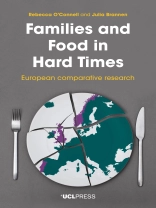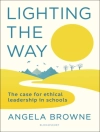Food is fundamental to health and social participation, yet food poverty has increased in the global North. Adopting a realist ontology and taking a comparative case approach, Families and Food in Hard Times addresses the global problem of economic retrenchment and how those most affected are those with the least resources.
Based on research carried out with low-income families with children aged 11-15, this timely book examines food poverty in the UK, Portugal and Norway in the decade following the 2008 financial crisis. It examines the resources to which families have access in relation to public policies, local institutions and kinship and friendship networks, and how they intersect. Through ‘thick description’ of families’ everyday lives, it explores the ways in which low income impacts upon practices of household food provisioning, the types of formal and informal support on which families draw to get by, the provision and role of school meals in children’s lives, and the constraints upon families’ social participation involving food.
Providing extensive and intensive knowledge concerning the conditions and experiences of low-income parents as they endeavour to feed their families, as well as children’s perspectives of food and eating in the context of low income, the book also draws on the European social science literature on food and families to shed light on the causes and consequences of food poverty in austerity Europe.
Praise for Families and Food in Hard Times
‘The ambitious scope of Families and Food in Hard Times – the culmination of a £1 million European Research Council grant – is matched only by the quality, depth and detail of the accounts it describes…. [a] considerable contribution to understanding the material, social, emotional consequences of food poverty’
Sociology
‘A valuable contribution to trans-national debates on food policy and social policy as well as a key addition to academic literature on poverty as experienced by mothers and children. …It will greatly contribute to academic understanding and provides useful policy insights which should be heeded by policy makers and those in power across Europe.’
Critical Social Policy
‘Original, rigorous, empathic. This is a ground-breaking contribution to transnational food and social policy research, which gives voice to the lived experiences of children and low-income mothers unable to feed their families. Containing moving testimony, this book is essential reading for changing public policy to the progressive realisation of the right to food for all, even in Norway.’
Graham Riches, University of British Columbia
‘Using the lens of food insecurity, this sensitive, fine-grained, cross-national and multi-tiered study offers important insights into poverty as experienced by children and mothers. It represents a valuable contribution to the academic literature but should also be read by politicians, policy-makers and practitioners.’
Ruth Lister, Loughborough University
Jadual kandungan
List of figures
List of tables
Acknowledgements
Introduction
Section 1 Setting the scene
1 The national contexts: the UK, Portugal and Norway
2 Research questions and concepts
3 The study
4 Which types of family are at risk of food poverty?
Section 2 Households as resource units
5 Three families headed by an unemployed lone mother
6 Three dual-earner households
7 Three undocumented migrant families
Section 3 The social dimensions of food poverty
8 Exclusion from sociability and social relationships
Section 4: Formal and informal support
9 Charity, family and friends 10 Children’s experiences of school meals 11
Conclusions and reflections
References
Index
Mengenai Pengarang
Julia Brannen is Emerita Professor of Sociology of the Family, Thomas Coram Research Unit, UCL Institute of Education and Fellow of the Academy of Social Sciences. Julia’s career in research spans four decades: an international reputation for research on family, work-family issues, intergenerational relationships, and food in families. She is also well-known for her expertise in methodology including mixed methods, biographical approaches and comparative research. Her latest book is Social Research Matters (2019).












